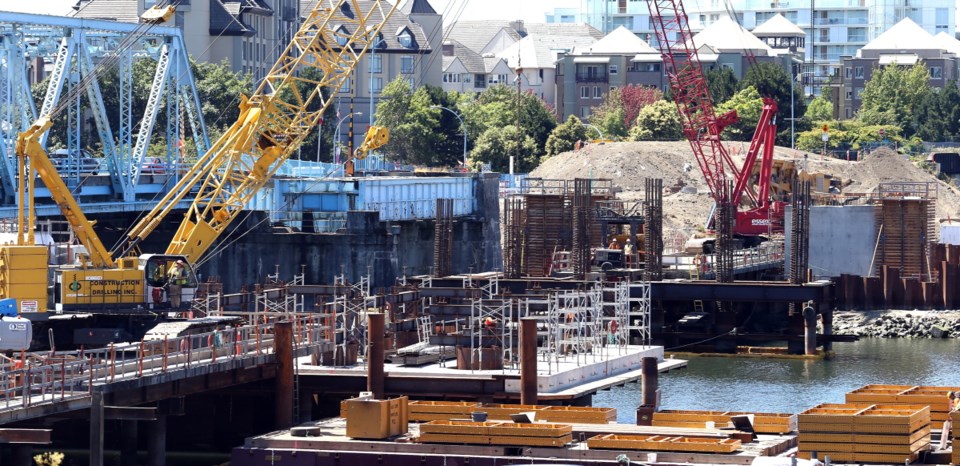Victoria had no option over where steel would be fabricated for the Johnson Street Bridge under federal funding regulations, says Victoria Mayor Dean Fortin in the face of criticism from Canadian ironworkers.
The Canadian Ironworkers Union issued a statement Wednesday suggesting Victoria could have saved time and money in the long run if it had opted to use domestic steel.
Fortin said he is aware of the union’s concerns, but said $37.5 million in funding for the bridge is coming from the federal government — and a condition of that funding is that all contracts are consistent with Canada’s Agreement on Internal Trade.
“As such, we have no control over where products are built,” Fortin said, adding that the Edmonton-based contractor, PCL Constructors Westcoast Ltd., made the decision about where to get the material.
“I think it’s important to recognize that 80 per cent of the current bridge funding is going to Canadian companies.”
Jiangsu Zhongtai Steel Structure Co. Ltd. is making steel for the bridge. A quarterly bridge update going to Victoria councillors today says that fabrication of the steel for the bridge project has been halted after inspections found it was not being built to design.
“A recent inspection found that some aspects of the steel, specifically the lifting lugs needed to move the bridge, were not fabricated according to the specifics laid out in the design,” the report says.
“Upon discovery of the error, work was immediately halted. Hardesty Hanover [engineers] who have been placed in charge of quality control on behalf of MMM Group and the city, are reviewing the matter with the manufacturer, PCL and Atema [PCL’s quality control subcontractor] to determine next steps to resolve the issues and prevent further issues as work proceeds.”
Eric Bohne, general organizer for Ironworkers International, said his organization would like to discuss the issue with various levels of government. “We’d like to sit down with them and see if we can work with them on developing procurement practice that works better for Canadian taxpayers and Canadian interests.”
A “low-bid mentality” is sending work to other countries, Bohne said.
“Local bidders are being shut out. It’s not fair trade — it’s not an even playing field.”
— With files from Jeff Bell



